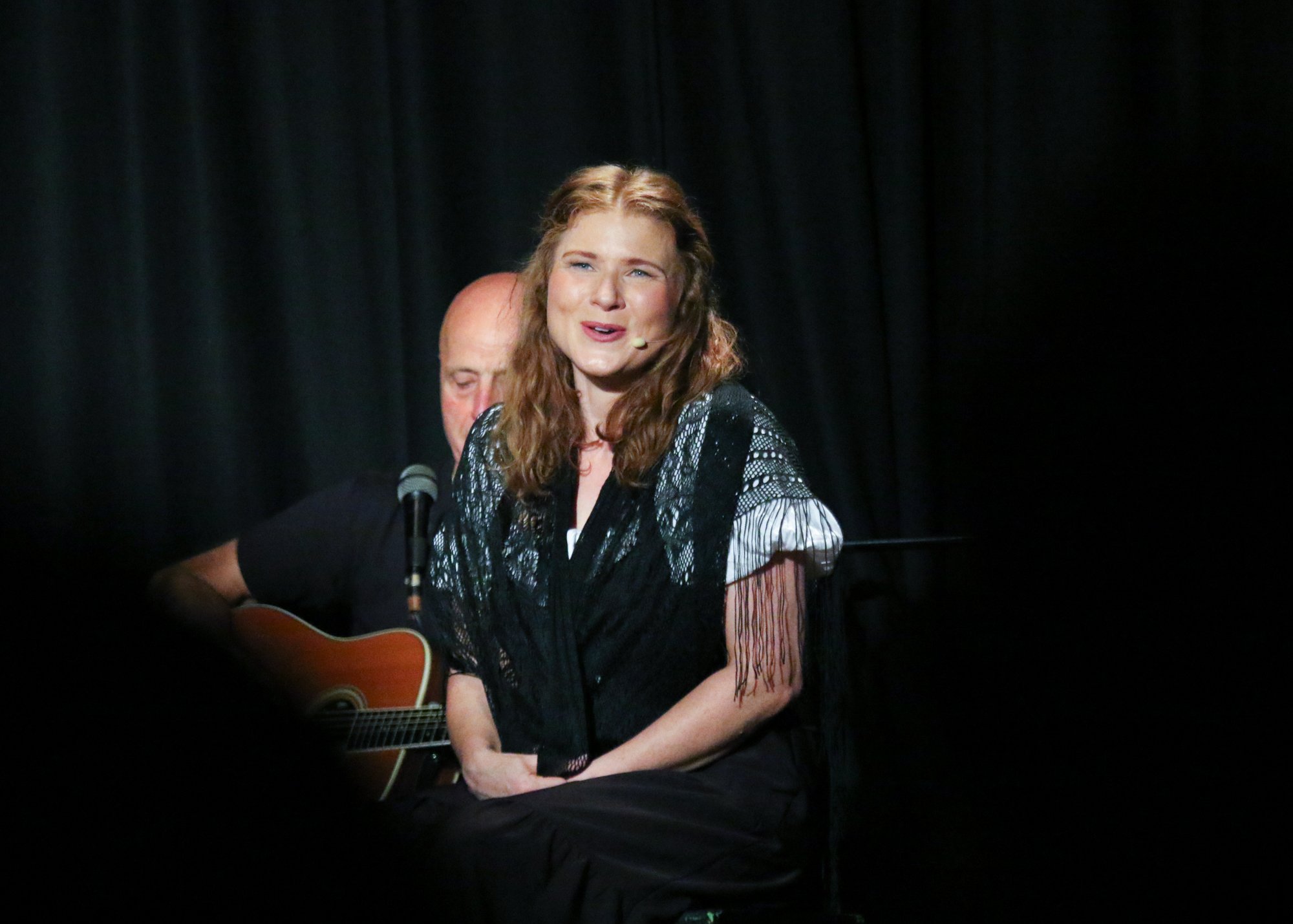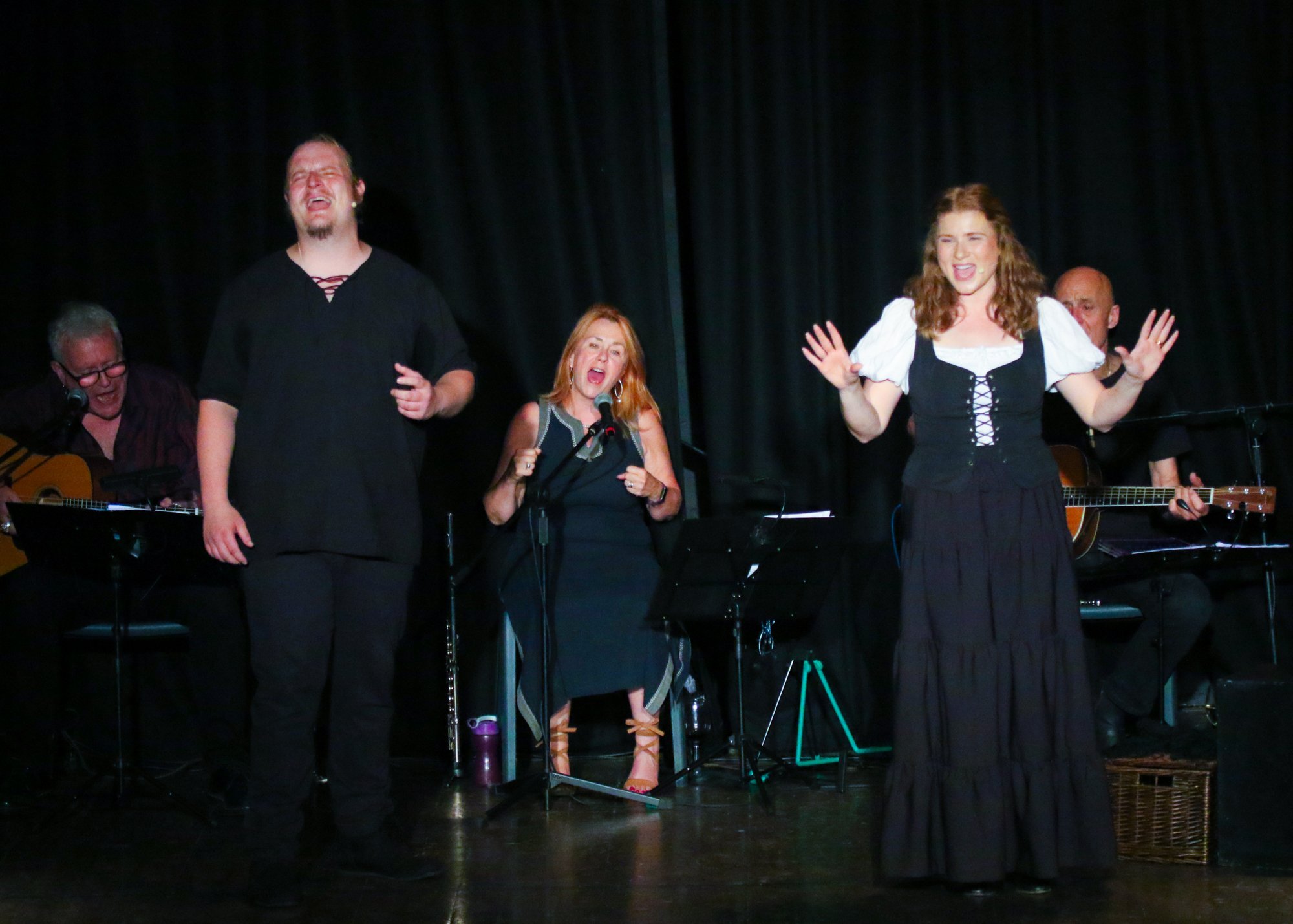Dedication
It was traditional to dedicate each play to a patron. Ours is a poetic song dedicated to Mark Hopkins (1959-2022) – Graham’s big and much-missed brother. The musical reference comes from a day when Mark and Graham went separately into Coventry city centre one Saturday in 1977. Mark returned with “When” by Showaddywaddy; Graham came home with “Pretty Vacant” by the Sex Pistols. Enough said. Brothers!
1. The prologue. Restoration plays were the full five acts with a prologue and epilogue (often – used to explain what was about or what had just happened – and were often bawdy and topical). Naturally, in Nelly we prologue in and Epilogue out … As expected our prologue follows the strictures of Restoration drama – and includes such key 17thC references such as Inspector Morse and James Bond. Born in Poverty (or possibly Hereford) to a prostitute mother and a father who probably died in a debtors’ gaol.
2. The return of the king. After Oliver Cromwell’s son Richard proved he wasn’t his father, the country looked to an exiled prince. It’s 1660 and Charles Stuart was about to come home. He never talked about it.
3. Fishy business. Nelly as a child worked as a cinder girl and fish hawker. Luckily we decline the obvious chance for fish puns … some fin we’d never get hooked into…
4. Carry On Up the Restoration! Nelly gets a job selling “fruit, sweetmeats, and all manner of fruiterer’s and confectioners’ wares” at the new theatre at Brydges Street – the King’s House. Oranges ARE the only fruit!
5. The stage is set. Such is her wit that Nelly attracts the attention of Charles Hart – the manager of the King’s Company of Comedians. And graduates from orange seller to actor (women are now officially allowed onto the stage). And becomes the finest comedy female actor of the time…
6. A plague upon you. The plague of 1665 closes the theatres. People are ordered to stay at home, keep their distance, bathe their coins, cover their faces. Imagine that.
7. London’s burning. As the late frosts of 1665 prorogued the plague, a new year sat waiting in the corner of winter with its three sixes: the number of the beast.
8. My mistress politics. Mistresses had the ear of the king which means you could get access to Charles II. For a fee, of course. It’s how politics worked then. Imagine.
9. A jacket removed. Nelly – the darling strumpet of the crowd – caught the King’s eye. And became his mistress (and remained so for 17 years). But she never exploited politically her position. Whereas others saw the crown – she just saw the man. And that’s also what he loved about her.
10.Learning French. Nelly’s best mate was John Wilmot, Earl of Rochester. He was part of the Merry gang (all the best playwrights, poets and wits that met weekly at Nelly’s house). She liked to keep her wits about her
11. Newmarket, Newmarket, Newmarket. The court adjourned to Newmarket every spring and autumn. Charles II loved horse racing. He is the only monarch ever to win a professional horse race. He is the reason horse racing is known as the “sport of kings”.
12. A man of war. Private and Common Thomas Seymour is a veteran of the Dutch war. He is badly disabled by his injuries and the State abandons him. He is left to beg. It gives Nelly an idea.
13. (I do want to go to) Chelsea. Nelly convinces Charles II to build the Royal Hospital at Chelsea where wounded soldiers can stay “while their bodies are rebuilded and their minds contented”.
14. Great minds drink alike. John Wilmot is brilliant but haunted by demons. Drink does for him. The wine, the ale, the grain. As Nelly says: “his eyes a chorus of seraphs/ a joyous noise but be careful / his face was cast by an angel / his heart, the very devil.
15. The mistresses. Charles’s other long-term mistresses, the duchesses of Cleveland and Portsmouth … both have very different takes on the king: demanding power, control and money. Nelly just loves it when he spends the night with her and not them… they can’t believe he even entertains such a common, “strolling actress”…
16. The king is dead. Nelly always believed Charles would live forever. Spoiler alert: he didn’t. On his death-bed he did ask his brother to take care of the duchesses of Cleveland and Portsmouth … and to not let poor Nelly starve.
17. He was my friend. One of the most moving things is a letter sent by Nelly (it was written by her maid as Nelly was illiterate). She was asking for help from James II (whom she used to know as “Dismal Jimmy” as he wasn’t the sharpest cutlass in the armoury). She wrote of Charles: “he was above all things in this world, my friend”.
18. The final account. Despite James II refusing to see or speak to Nelly as she represented past folly (he wanted to be seen as a “king”) he honoured Charles deathbed request. The secret service payments show that her debts were cleared by James and she was granted a £1500 annual pension (worth about £160k today).
19. Close the curtains. Spoiler alert, part 2: the most famous woman alive also dies. One third of London’s population attended the funeral outside St Martin in the Fields (that would be 3m today). Some woman.
20. Epilogue. As in John Dryden’s Tyrannic Love (a part he wrote – as he did with all of his plays - specifically for Nelly) she rises from death to speak the epilogue. She lives on.
NELLY SONGS




















